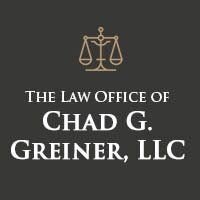Best Brokerage Lawyers in Georgia
Share your needs with us, get contacted by law firms.
Free. Takes 2 min.
Free Guide to Hiring a Real Estate Lawyer
Or refine your search by selecting a city:
List of the best lawyers in Georgia, United States
About Brokerage Law in Georgia, United States
Brokerage law in Georgia governs the legal relationships and activities of brokers who facilitate transactions between buyers and sellers in areas such as real estate, securities, business acquisitions, insurance, and other industries. The most well-known are real estate brokers, but brokerage can also refer to commodities, finance, and other asset classes. In Georgia, brokers must abide by both state and federal regulations, maintain proper licensing, and ensure they act in the best interests of their clients. Failure to comply with these laws can result in serious legal consequences, including penalties, loss of license, and potential litigation.
Why You May Need a Lawyer
Legal assistance in brokerage matters can be critical for several reasons. Whether you are a broker, a client, or a party to a transaction, a lawyer can help you:
- Interpret and negotiate brokerage agreements
- Resolve commission disputes between brokers and clients or cooperating brokers
- Address allegations of breach of fiduciary duty or professional misconduct
- Navigate complex state licensing and compliance issues
- Defend against or initiate lawsuits related to failed transactions or fraud
- Deal with misrepresentation or nondisclosure claims
- Understand liability issues in real estate, securities, or business brokering
Having a knowledgeable attorney means you have someone on your side to protect your rights, ensure regulatory compliance, and help you avoid costly mistakes in the brokerage process.
Local Laws Overview
In Georgia, specific statutes and regulations apply to different types of brokerage activity:
- Real Estate Brokerage: Governed by the Georgia Real Estate Commission (GREC) and Georgia Real Estate License Law, brokers must hold a valid state license, disclose agency relationships, and handle client funds according to strict rules.
- Securities Brokerage: Regulated by both the Georgia Secretary of State’s Securities Division and the U.S. Securities and Exchange Commission for federal compliance, brokers must register, follow anti-fraud statutes, and adhere to ethical standards.
- Business Brokerage: Involves brokering the sale of companies or business interests. While less strictly regulated than real estate or securities, certain transactions may still require compliance with state or federal law and contractual formalities.
Georgia law places a strong emphasis on licensing, ethics, proper disclosure, and consumer protection in all brokerage fields. Violations can lead to administrative penalties, civil lawsuits, and even criminal charges in cases of fraud or misappropriation.
Frequently Asked Questions
What is the definition of a broker in Georgia?
A broker is an individual or firm licensed to act as an intermediary in transactions such as the sale, purchase, lease, or exchange of property, securities, or businesses for a fee or commission.
Do I need a license to act as a broker in Georgia?
Yes, most types of brokers, including real estate and securities brokers, must obtain a valid state license before conducting business in Georgia. Operating without a license can result in penalties and legal action.
How are brokerage commissions regulated in Georgia?
Commission rates are negotiable but must be clearly disclosed and agreed upon in writing. Disputes over commissions are common grounds for legal action between brokers and clients or among brokers.
What duties does a broker owe to clients?
Brokers owe fiduciary duties such as loyalty, confidentiality, disclosure, accounting, and obedience. They must always act in the best interests of their clients and disclose conflicts of interest.
Can a broker represent both buyer and seller in a transaction?
Yes, this is known as dual agency. However, in Georgia, both parties must provide informed written consent and understand that some fiduciary duties may be limited in this arrangement.
What happens if a broker violates Georgia brokerage laws?
Violations can result in disciplinary action by regulators, including fines, suspension or revocation of license, restitution, and possible civil or criminal liability.
What are common disputes in brokerage transactions?
Typical disputes involve commission disagreements, allegations of misrepresentation or nondisclosure, breach of contract, and the improper handling of client funds.
Is it possible to file a complaint against a broker in Georgia?
Yes, you can file complaints with the Georgia Real Estate Commission for real estate brokers or with relevant regulatory agencies for other types of brokers. Investigations may lead to disciplinary action or mediation.
Are there special rules for online or out-of-state brokers?
Yes, out-of-state brokers must comply with Georgia licensing requirements when conducting brokerage activity involving Georgia clients or properties. Online brokers are also subject to the same laws and oversight.
What should I look for when choosing a broker in Georgia?
Check for proper licensing, a strong track record, transparent business practices, clear commission structures, and positive client reviews. Never hesitate to ask for credentials and references.
Additional Resources
Georgia residents can turn to several organizations and governmental agencies for guidance on brokerage matters:
- Georgia Real Estate Commission (GREC) - Oversees real estate broker licensing and standards
- Georgia Secretary of State’s Securities Division - Regulates securities brokers and dealers
- Georgia Office of Insurance and Safety Fire Commissioner - Handles insurance brokerage concerns
- Georgia Association of Business Brokers - Resource for business brokerage professionals and clients
- U.S. Securities and Exchange Commission (SEC) - Federal regulation for securities brokers
- Georgia Attorney General’s Consumer Protection Division - Assists with fraud and consumer complaints
Next Steps
If you believe you need legal assistance with a brokerage issue in Georgia, consider the following steps:
- Gather all relevant documents such as contracts, correspondence, and transaction records
- Identify the type of brokerage involved to determine the appropriate legal specialty
- Consult a qualified attorney who has experience with Georgia brokerage law
- Contact the relevant regulatory agency if you suspect license violations or unethical practices
- Document your interactions and concerns thoroughly to assist your lawyer in assessing your case
Seeking legal counsel early can help you avoid mistakes and ensure your rights are protected in any brokerage transaction or dispute.
Lawzana helps you find the best lawyers and law firms in Georgia through a curated and pre-screened list of qualified legal professionals. Our platform offers rankings and detailed profiles of attorneys and law firms, allowing you to compare based on practice areas, including Brokerage, experience, and client feedback.
Each profile includes a description of the firm's areas of practice, client reviews, team members and partners, year of establishment, spoken languages, office locations, contact information, social media presence, and any published articles or resources. Most firms on our platform speak English and are experienced in both local and international legal matters.
Get a quote from top-rated law firms in Georgia, United States — quickly, securely, and without unnecessary hassle.
Disclaimer:
The information provided on this page is for general informational purposes only and does not constitute legal advice. While we strive to ensure the accuracy and relevance of the content, legal information may change over time, and interpretations of the law can vary. You should always consult with a qualified legal professional for advice specific to your situation.
We disclaim all liability for actions taken or not taken based on the content of this page. If you believe any information is incorrect or outdated, please contact us, and we will review and update it where appropriate.
Browse brokerage law firms by city in Georgia
Refine your search by selecting a city.










